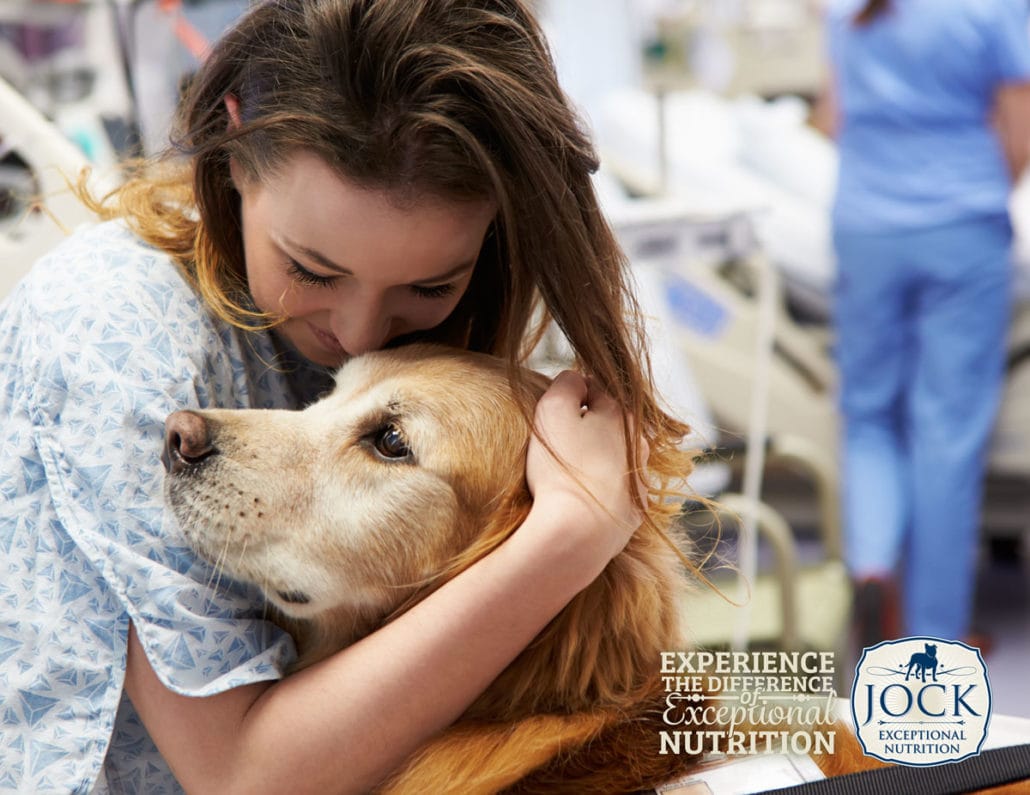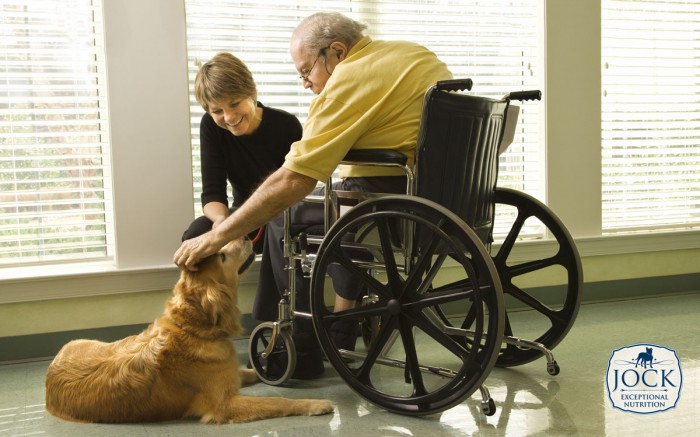As man’s best friend, dogs have always been able to bring a smile to our faces, even in the most trying of times. Their unconditional love has been a documented source of strength for many, which has steadily become a popular therapy that provides comfort to the sick, injured, elderly, and physically and mentally disabled. And while many still doubt the efficiency of this alternative way of healing, it can’t be denied that these dogs bring joy to the lives of those who need it the most.
One of these dogs is Roger, a 15-year old Border Collie that is spreading love at Emma Barter Old Age Home in KwaZulu Natal. He belongs to nursing sister Pat Ferguson, who has brought him to work every Thursday morning for the past two years to visit. And while some of the residents suffer from dementia and Alzheimer’s, and can’t remember family or friends, they remember Roger’s name and even look forward to his weekly, playful visits.
Roger is just one of the many therapy dogs around South Africa that are being used to improve the quality of life of those in special care facilities and homes, and science is finally backing up their good work. Animal Assisted Therapy (AAT) has been proven to help reduce an elevated heart rate, blood pressure and stress levels, and increase emotional well-being and social interaction. It can also help improve a patient’s recovery time after serious diseases, infections and trauma.
But it doesn’t end there.
Research into dogs that can smell cancer is currently being conducted, and it’s showing some positive results. One controlled study from Italian researchers showed that specially trained dogs were able to detect prostate cancer in urine with 98% accuracy. In fact, a dog’s heightened sense of smell can help it detect a variety of human diseases, and is even being employed to provide alert assistance to patients with life-threatening conditions. Specially trained dogs are being used to detect hypoglycaemia (dangerously low blood sugar levels) in the breath or sweat of diabetics, which can help prevent a serious medical emergency. There are also dogs that are trained to detect clostridium difficile bacteria, a common cause of hospital-acquired infections, in patients’ faeces and hospital air.
With all the mounting evidence in support of dogs being used to aid our health and well-being, it might only be a matter of time before hospitals, much like the police, have their own dog unit. The key responsibilities of these canine carers would be to help doctors detect diseases early and also help patients on their road to recovery. They certainly have the bed-side manner for it.


